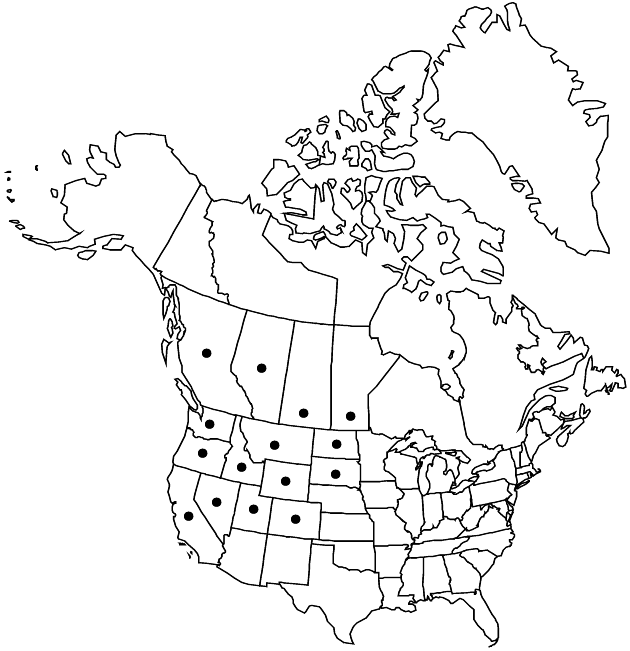Arnica fulgens
Fl. Amer. Sept. 2: 527. 1813.
Plants 10–75 cm. Stems solitary, simple. Leaves 3–5 pairs, crowded toward stem bases (some or all axils with dense tufts of brown wool); petiolate (petioles at least basal leaves, narrow or broadly winged); blades (with 3 or 5 prominent, subparallel veins) usually narrowly oblanceolate to oblong, rarely oval or broadly spatulate, 4.5–20 × 0.5–2.5 cm, margins denticulate, apices obtuse, faces moderately uniformly hairy, stipitate-glandular. Heads 1(–3). Involucres broadly hemispheric. Phyllaries 13–21, elliptic-oblong or narrowly to broadly lanceolate. Ray florets 8–16; corollas yellow-orange. Disc florets: corollas yellow; anthers yellow. Cypselae brown, 3.5–7 mm, densely hirsute, sometimes sparingly stipitate-glandular; pappi usually white, sometimes tawny, bristles barbellate. 2n = 38, 57.
Phenology: Flowering May–Jul.
Habitat: Prairies and grasslands to montane conifer forests
Elevation: 500–3000 m
Distribution

Alta., B.C., Man., Sask., Calif., Colo., Idaho, Mont., Nev., N.Dak., Oreg., S.Dak., Utah, Wash., Wyo.
Discussion
Selected References
None.